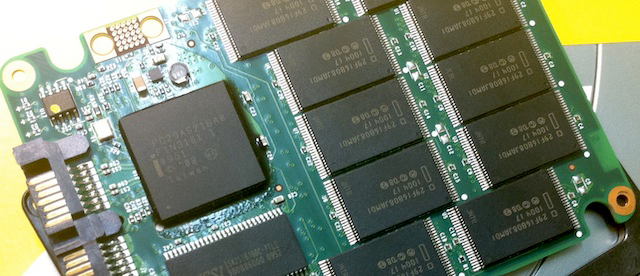You are here
Chiptalk: Every second counts
By Jean-Claude Elias - May 28,2020 - Last updated at May 28,2020

Photo courtesy of innovationessence.com
Imagine making it from Amman to Aqaba with your car in one hour instead of the usual four. That’s the kind of speed improvement SSD (solid state drive) disc storage technology has brought us in the last few years, compared to HDD, the older, more traditional and mechanical hard disk drive models.
If SSD has already been widely adopted in the new laptop and desktop computers, till now the drives have been mainly installed inside the computers. Recently, however, manufacturers have started making and selling external USB SSDs, as a gradual move towards replacing HDD in mobile-external technology as well.
External USB disks are very popular and widely used to make additional safety copies of large amounts of data, or to transfer files between computers and users, in a reliable way, via a USB cabled connection. One of the most interesting SSD external USB models is SanDisk Extreme Pro. The portable unit will move 1.2 GB in two seconds flat. This is the approximate equivalent size of one hour of high-definition video, 150 MP3 songs or as many very large hi-res photos.
Already a regular, steady and known trend in the field of IT, the demand for “constantly more and faster” in every aspect of dealing with computers and the Internet has been exacerbated even further by the COVID-19 crisis, with each and every one looking for the best possible IT performance, be it offline or online, local or remote.
The demand is multidirectional. Of course, faster and more reliable Internet is the main issue here. Higher definition webcams, larger screens, better microphones and speakers and more cloud storage are also on the list of the very much sought-after items.
Having contacted three of the main computer shops in Amman, they confirmed that sales have been booming since citizens were allowed to go out again and take their car for shopping, thanks to the alternating odd-even traffic rule. They said that their main difficulty at present was importing and receiving enough models and quantity of goods to satisfy the demand. This is particularly obvious in sales of webcams, external USB discs, and USB charging portable battery banks.
Not surprisingly, and despite the apparent difficulty to get back to work “normally” in many a sector, Jordanian software development companies that deal with online and mobile payments are not only doing very well, but also are looking to recruit more staff.
Another example of the kind of pressure that is put on IT is the fact that most people now do not turn off their computer at night anymore, but put it in “sleep” mode instead, being able this way to resume using it instantly anytime they need to, day or night. IT professionals and heavy users had already adopted the sleep mode long ago. Until last March they were a minority. Now they are the majority.
Waiting two to five minutes (in some extreme cases…) to have your computer up and running in the morning was something you could live with. Now these minutes seem like an eternity. A few seconds is all you can afford or accept to wait.
In that line, it is worth noting that the newest models of laptops and when fitted with the above mentioned SSD discs, can be powered on from total shut off (i.e. not awoken from sleep mode) and get ready for you significantly faster than their older counterparts. They can do it a few seconds indeed, as if resuming from sleep mode for older models.
Yes, today’s life with computers and the web is about precious seconds and even fractions of a second in some cases.
Related Articles
If you would like to give your computer a serious speed booster, the one single element that today is recommended to go to is a Solid State
The world and the specialised media keep trying to impress us with hot but somewhat mysterious IT topics such as bitcoin, blockchain, driver
If your laptop computer is four years or older and you are planning to replace it with a new one, you may want to prepare mentally to accept











